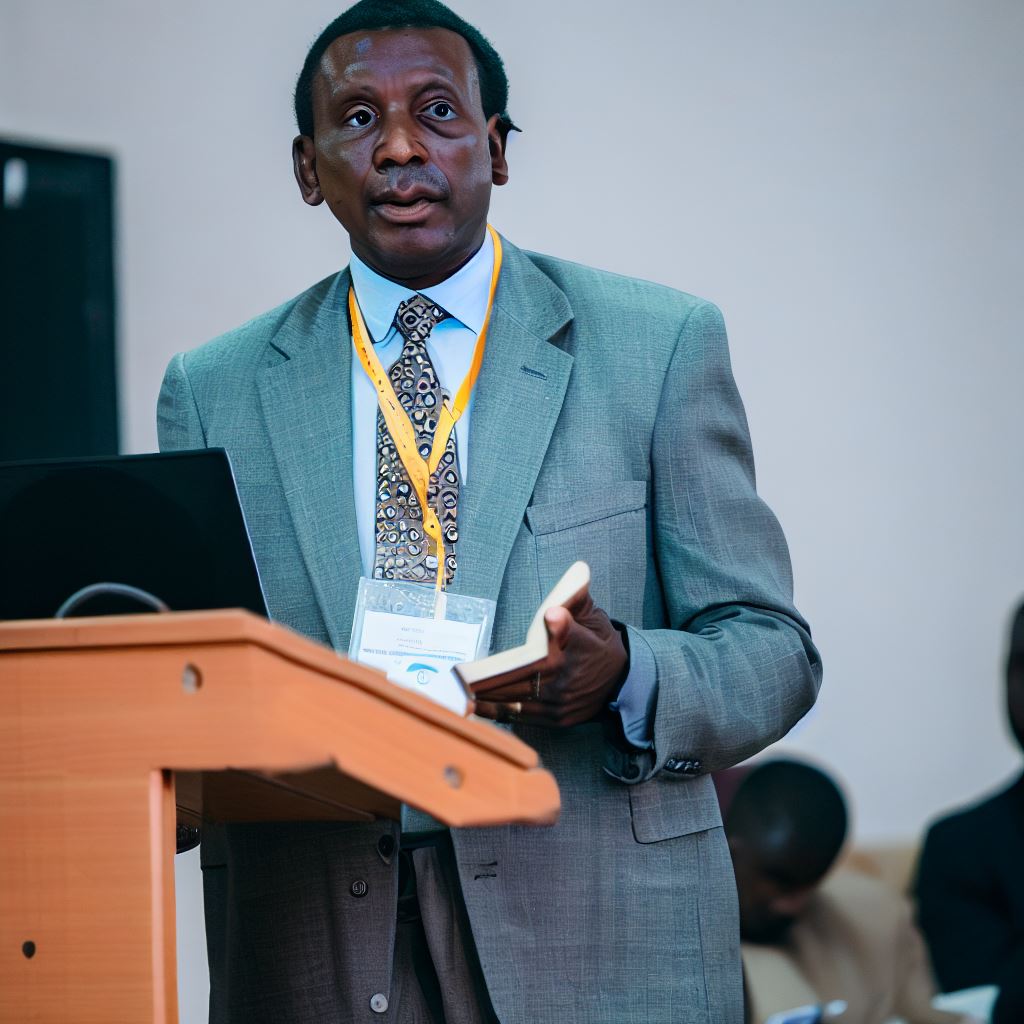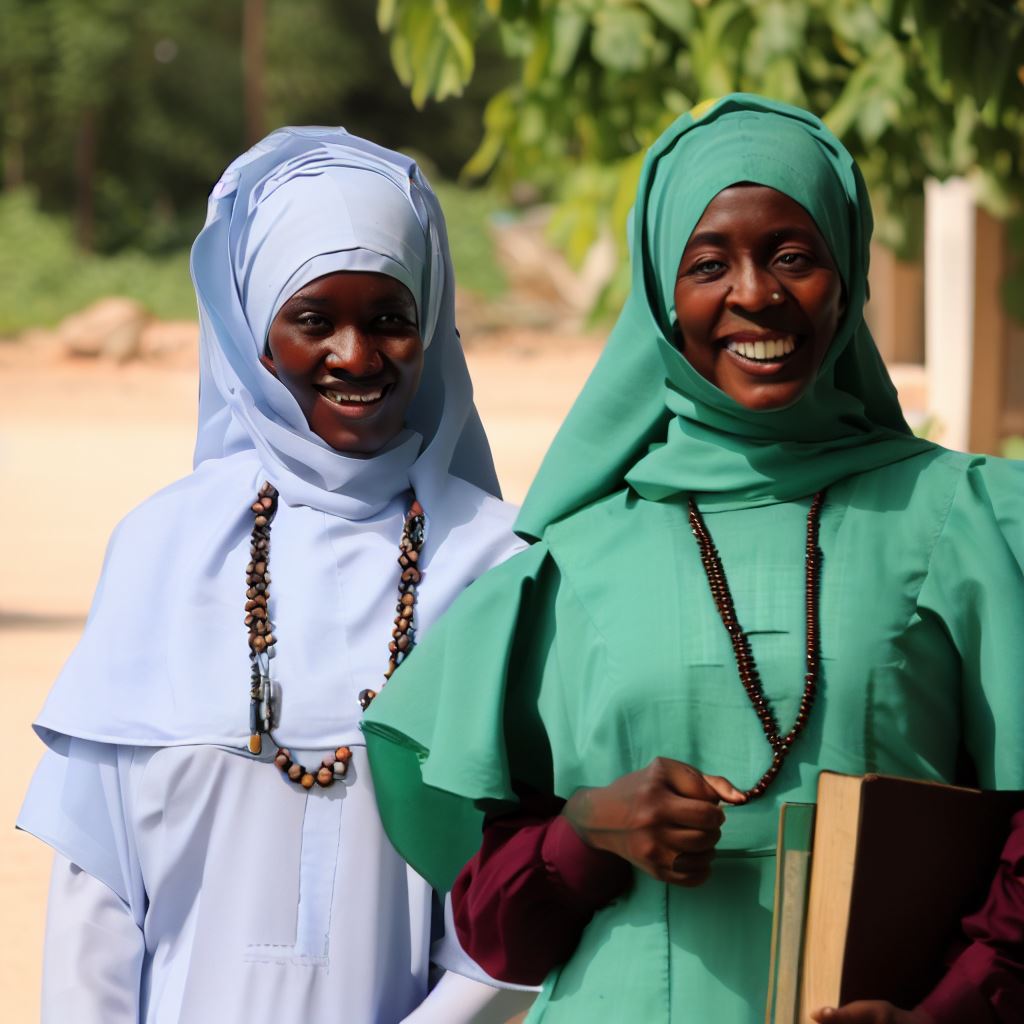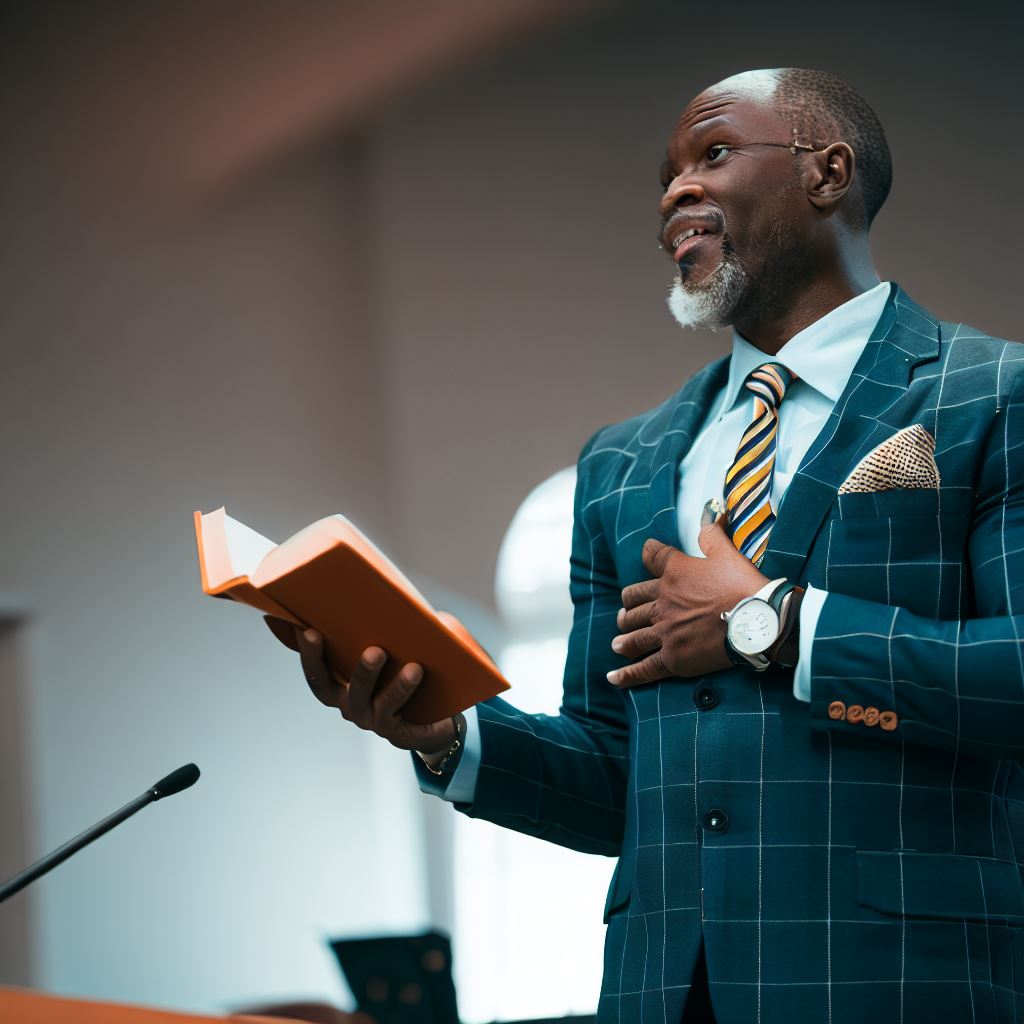Introduction
Pastors play a vital role in Nigerian society, shaping the religious and moral fabric. Religion holds immense importance in Nigeria, deeply influencing its culture and people.
This blog post delves into the current roles and responsibilities of pastors in Nigeria. Religion holds immense importance in Nigerian society, shaping its ethical, moral, and social fabric.
With an overwhelmingly religious population, pastors assume crucial roles and responsibilities that extend beyond spiritual guidance.
These leaders play a central role in addressing societal issues, providing comfort, and fostering community cohesion.
In Nigeria, pastors are seen as key figures in both individual spiritual journeys and the collective well-being of the society.
As spiritual leaders, they are responsible for guiding and nurturing the faith of their congregants, offering prayers, and delivering inspirational sermons.
They serve as moral compasses, reminding their followers to live virtuously and embrace ethical values.
Moreover, pastors in Nigeria often assume additional responsibilities beyond their spiritual duties.
They are actively involved in philanthropy, leading efforts to address pressing social concerns.
Many pastors spearhead initiatives focused on poverty alleviation, education, healthcare, and community development.
These endeavors demonstrate their dedication to improving the lives of their congregations and communities at large.
Additionally, pastors are considered trusted advisors, offering counseling and support to individuals facing various challenges.
Whether it be marital issues, financial troubles, or emotional distress, pastors provide guidance, encouragement, and a sympathetic ear.
This counseling role helps foster mental and emotional well-being within the Nigerian society.
In essence, the roles and responsibilities of pastors in Nigeria today go beyond traditional spiritual leadership. They are influential figures who provide guidance, support, and community-building efforts.
Transform Your Career in Nigeria
Discover unmatched expertise with our personalized Career Consulting service. Navigate Nigeria’s job market with a strategy tailored just for you.
Get StartedTheir impact extends far beyond the boundaries of religious institutions, significantly shaping Nigerian society as a whole.
Historical Context of Pastoral Roles in Nigeria
In order to understand the roles and responsibilities of pastors in Nigeria today, it is important to examine the historical context in which they originated and evolved.
This section provides a brief overview of the establishment of Christianity in Nigeria, the evolution of pastoral roles from traditional African religious practices, and the influence of colonialism on the structure and roles of pastors.
A. Brief overview of the establishment of Christianity in Nigeria
Christianity was introduced to Nigeria by European missionaries in the late 19th century.
Initially, Christian missions focused on evangelizing and converting Nigerians to Christianity.
As the Christian faith spread, Nigerian converts started assuming leadership roles within their communities.
This led to the establishment of local churches and the appointment of pastors to shepherd these congregations.
The Nigerian indigenous churches emerged, adapting Christianity to the Nigerian cultural context.
B. The evolution of pastoral roles from traditional African religious practices
Prior to the arrival of Christianity, Nigeria had a rich tradition of traditional African religious practices and spiritual leaders.
These traditional religious leaders played various roles such as healers, diviners, and mediators between the community and the spiritual realm.
With the introduction of Christianity, some of these traditional practices were incorporated into the roles of pastors.
Pastors became spiritual leaders, providing guidance, healing, and counseling to their congregations. They were also responsible for conducting religious ceremonies, such as baptisms and marriages.
C. Influence of colonialism on the structure and roles of pastors
During the colonial period, the British imposed their own religious and administrative structures in Nigeria.
Christianity became intertwined with colonialism, as missionary activities were often supported by the colonial government.
This influenced the structure and roles of pastors, as they were seen as agents of both spiritual and social transformation.
Pastors played a pivotal role in education, healthcare, and social welfare, especially in rural areas.
They became not only spiritual leaders but also community leaders, advocating for the rights and well-being of their congregations.
In fact, the historical context of pastoral roles in Nigeria encompasses the establishment of Christianity, the incorporation of traditional African religious practices, and the influence of colonialism.
These factors have shaped the roles and responsibilities of pastors in Nigeria today, where they serve as spiritual leaders, community advocates, and agents of social change.
Read: Becoming a Pastor in Nigeria: An In-Depth Career Guide
Primary Roles of Pastors in Nigeria
A. Spiritual leadership and guidance
One of the primary roles of pastors in Nigeria is to provide spiritual leadership and guidance to their congregations.
They are responsible for conducting various religious ceremonies and services, such as Sunday worship, weddings, funerals, and baptisms.
It is through these ceremonies that pastors help their congregants connect with their faith and experience spiritual growth.
Another important aspect of spiritual leadership is preaching and teaching the Holy Scriptures.
Publish Your Professional Profile, Business or Brand
Showcase your expertise, gain trust, and boost visibility instantly on Professions.ng.
Publish NowPastors are expected to deliver sermons that are based on the Bible and provide guidance and inspiration to their congregations.
They help interpret the Scriptures and apply the teachings to the daily lives of their congregants.
Pastors also play a crucial role in providing pastoral care and counseling to their congregants.
They offer guidance and support during challenging times, such as personal crises, marital issues, and grief.
Through pastoral counseling, pastors help individuals find solace, healing, and spiritual direction.
B. Moral and Ethical Discourse
Aside from their spiritual roles, pastors in Nigeria are also tasked with promoting values and ethical standards within the community.
They are the moral compasses of society, addressing societal issues and conflicts from a moral standpoint.
They speak out against injustice, corruption, and immorality, and encourage their congregants to uphold principles of honesty, integrity, and faithfulness.
Furthermore, pastors advocate for social justice and humanitarian efforts.
They support initiatives that aim to improve the well-being of the less privileged, such as orphanages, schools, hospitals, and community development projects.
Pastors in Nigeria often organize outreach programs and encourage their congregants to actively participate and contribute to these efforts.
In short, the primary roles of pastors in Nigeria involve spiritual leadership and guidance, as well as moral and ethical discourse.
They conduct religious ceremonies and services, preach and teach the Holy Scriptures, and provide pastoral care and counseling.
Additionally, pastors promote values and ethical standards, address societal issues from a moral standpoint, and encourage social justice and humanitarian efforts.
Read: Interfaith Dialogue: Role of Imams in Nigeria Today

Secondary Responsibilities of Pastors in Nigeria
In addition to their primary responsibilities in leading the church and nurturing the spiritual growth of their congregation, pastors in Nigeria also have secondary roles and responsibilities that contribute to the overall welfare and development of the society.
A. Community engagement and development
Community engagement plays a vital role in the responsibilities of pastors in Nigeria. They actively organize outreach programs and initiatives to address the social, economic, and healthcare needs of the community.
These initiatives often include providing medical assistance, organizing skill acquisition programs, and empowering individuals through educational opportunities.
By actively engaging with the community, pastors foster unity and cooperation among community members, creating a sense of belonging and support system for all.
Furthermore, pastors in Nigeria strive to provide support and assistance to the less privileged in the community.
They dedicate themselves to help those who are marginalized by creating platforms for empowerment and advocating for their rights.
Through counseling, financial support, and collaboration with other organizations, pastors contribute to the overall development and improvement of living standards within the community.
B. Political involvement and advocacy
Another important aspect of the responsibilities of pastors in Nigeria is their involvement in politics and advocacy.
Pastors offer guidance to political leaders and decision-makers based on moral and biblical principles.
They serve as spiritual advisors, emphasizing the importance of justice, fairness, and ethical governance.
By providing wise counsel, pastors help shape the decision-making process, ensuring that policies and actions align with the welfare of the people.
Furthermore, pastors in Nigeria address political and social issues through their sermons and public standpoints.
They use their influential positions to advocate for social justice, equality, and good governance.
By addressing these issues, pastors encourage open dialogue and raise awareness among their congregants and the wider society.
Additionally, pastors play a crucial role in encouraging active participation in the democratic process.
They highlight the significance of voting and being part of the decision-making process.
Pastors motivate congregants to exercise their democratic rights responsibly, ensuring that their voices contribute to the development and progress of the nation.
By encouraging political involvement, pastors empower individuals to actively engage in shaping the future of Nigeria.
In review, pastors in Nigeria undertake not only the primary responsibilities of shepherding their flock but also participate in secondary responsibilities that contribute to community engagement, development, and political advocacy.
Their active involvement in the community and political sphere demonstrates their commitment to holistic growth and the betterment of society as a whole.
Read: Youth Education: How Imams Shape Minds in Nigeria
Challenges Faced by Pastors in Nigeria Today
A. Corruption and Controversies within Religious Institutions
- Pastors in Nigeria today face the challenge of corruption and controversies within religious institutions.
- Corruption scandals and controversies involving pastors have shaken the trust of many believers.
- These scandals have tarnished the reputation of pastors and made their work even more challenging.
- Pastors are now forced to constantly prove their credibility and integrity to the congregations they serve.
- It is a challenging task to overcome the skepticism and regain the trust of the people they minister to.
B. Balancing Spiritual Responsibilities with Financial Stewardship
- Pastors in Nigeria also face the challenge of balancing their spiritual responsibilities with financial stewardship.
- They have the responsibility to shepherd the church, preach the gospel, and provide spiritual guidance to their congregation.
- However, they also have financial responsibilities to ensure the church’s financial sustainability and meet the needs of the church members.
- Managing church finances and ensuring transparency can be a daunting task for pastors.
- They must strike a delicate balance between financial stewardship and focusing on their spiritual duties.
C. Dealing with Societal Expectations and Demands
- Another major challenge faced by pastors in Nigeria today is dealing with societal expectations and demands.
- Society expects pastors to be the moral compass, addressing social issues and providing solutions.
- They are expected to speak out against societal vices, injustices, and corruption.
- Pastors are often burdened with the weight of societal problems, which can be overwhelming.
- Meeting the expectations of both the congregation and society can lead to immense pressure and stress for pastors.
Read: The Ethics and Moral Standards for Imams in Nigeria
Conclusion
To recap, pastors in Nigeria have numerous roles and responsibilities such as providing spiritual guidance, counseling, and teaching.
The importance of pastors in fostering positive change in society cannot be overstated.
The pastoral role is incredibly significant in the Nigerian context as pastors play a vital role in shaping individuals and communities spiritually, emotionally, and socially.
Publish Your Professional Profile, Business or Brand
Showcase your expertise, gain trust, and boost visibility instantly on Professions.ng.
Publish Now



